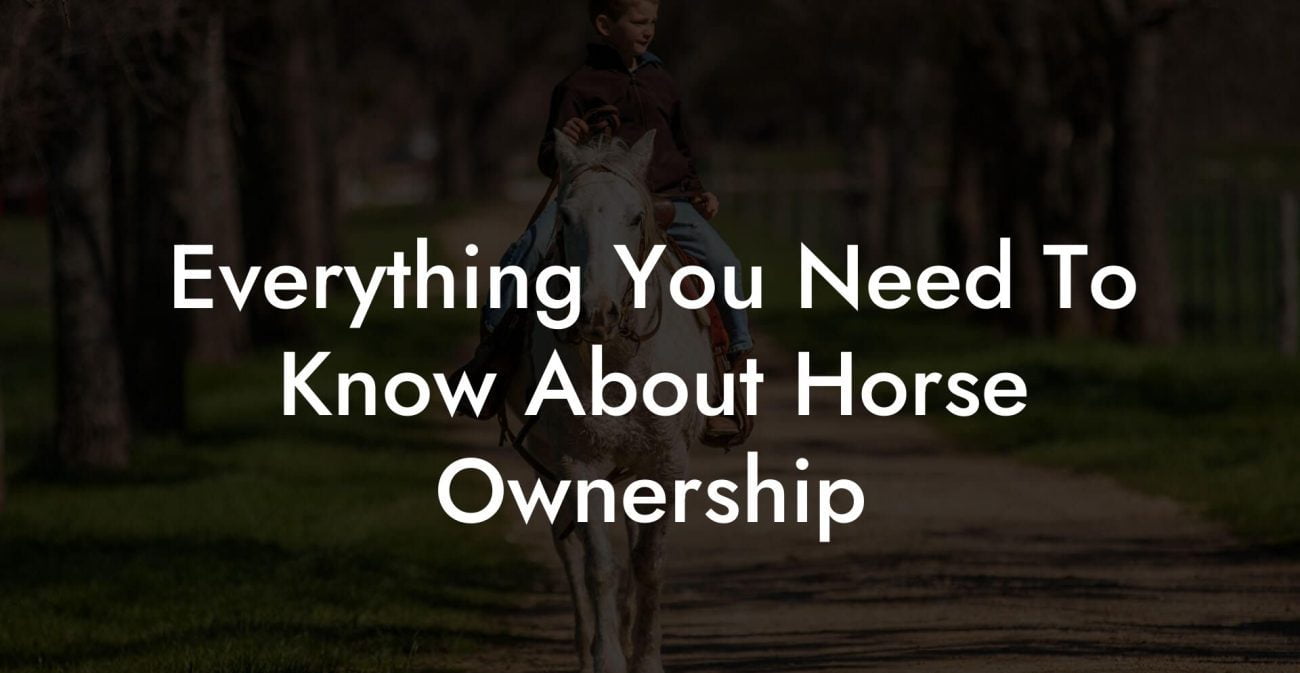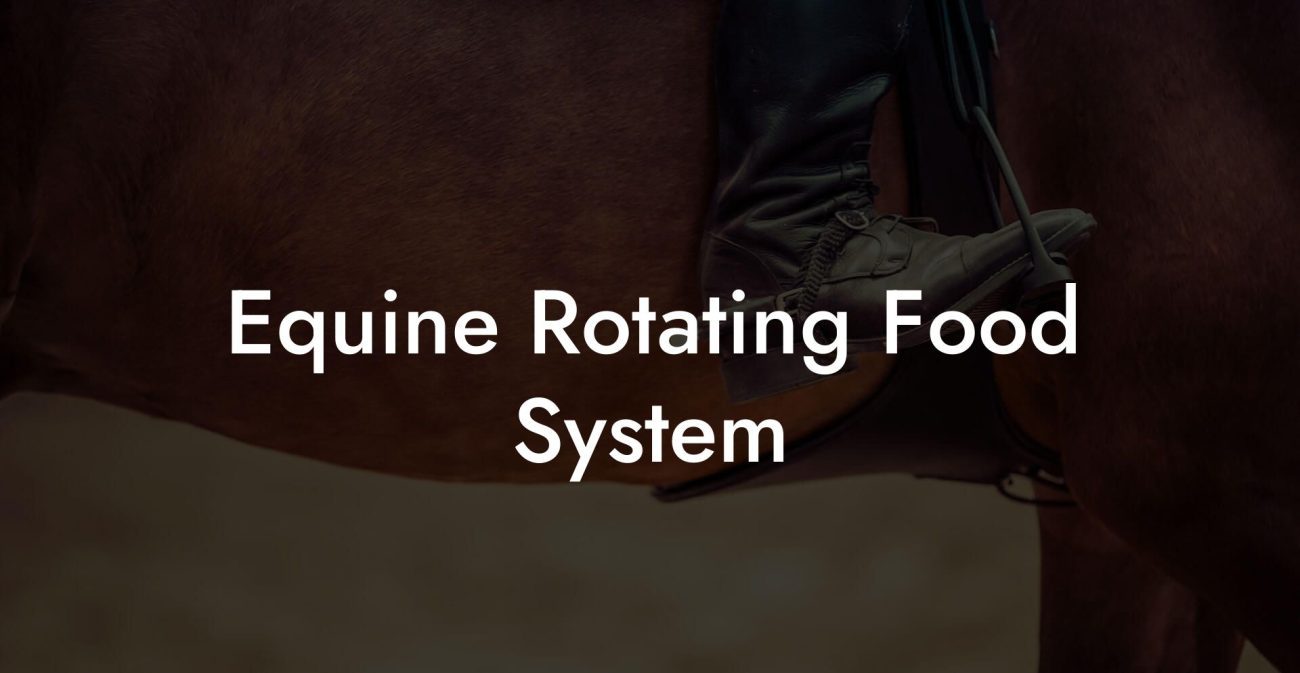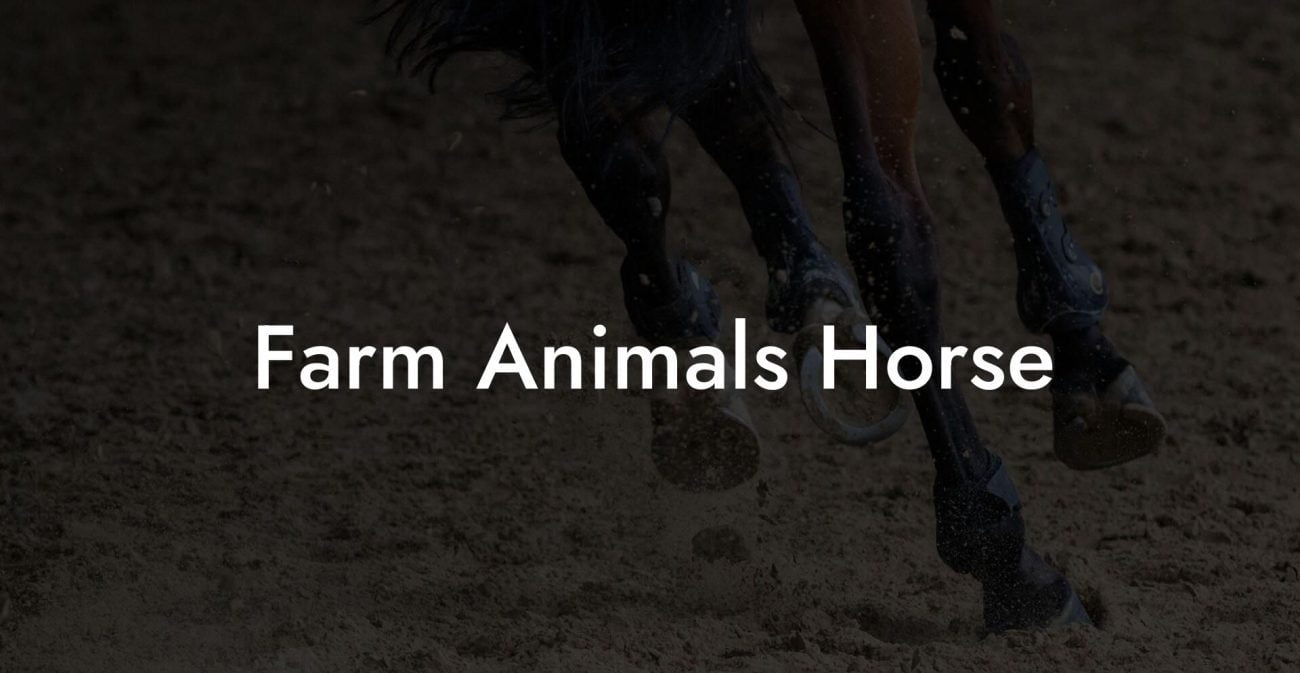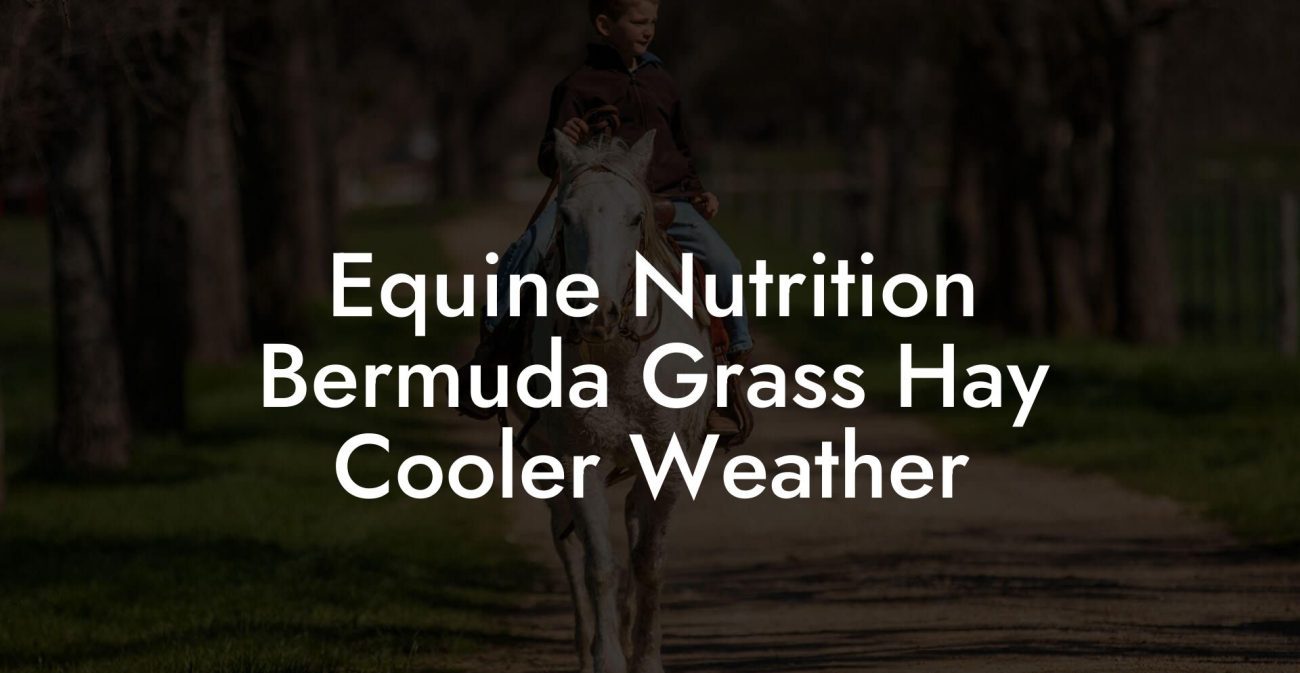Ever wondered if your horse is bingeing on grains like a Gen-Z coffee addict on a Monday morning? Buckle up—you’re about to dive into the crunchy, calorie-packed world of equine grain feeding. This isn’t your typical dusty old farming manual; we’re breaking down the how, why, and how-much of feeding grains to your four-legged friend in an energetic, no-BS guide that’s perfect for modern horse enthusiasts.
Quick Links to Useful Sections
- The ABCs of Horse nutrition: Why Grains Aren’t Just Snacks for Humans
- Breaking Down the Grain: Types, Benefits, and Nutty Details
- Oats
- Barley
- Corn
- Factors That Determine How Much Grain to Feed Your Horse
- Body Weight and Size
- Age and Life Stage
- Activity Level and Workload
- Metabolic Health
- Weather and Seasonal Changes
- Calculating the Right Grain Feeding Ratio: A Step-by-Step Guide
- Step 1: Determine Your Horse’s Weight
- Step 2: Understand the Grain Feeding Guidelines
- Step 3: Adjust Based on Activity and Metabolic Needs
- Step 4: Consider Grain Type Nutritional Density
- Step 5: Monitor and Modify
- Feeding Schedules: Timing Is Everything
- Multiple Small Meals vs. One Big Meal
- Synchronize with Forage Feeding
- Consistency Is Key
- Integrating Grain with Forage: Getting the Perfect Mix
- The Natural Grazing Lifestyle
- Adjusting the Forage-to-Grain Ratio
- Special Considerations: Age, Activity, and Health Conditions
- Younger Horses and Growing Colts
- Performance Horses and Athletes
- Senior Horses
- Horses with Metabolic Disorders
- Avoiding Common Feeding Pitfalls: Lessons from the Past
- Overfeeding on Grain
- Inconsistent Feeding Patterns
- Neglecting the Quality of the Grain
- Ignoring Individual Horse Needs
- The Future of Equine Nutrition: Sustainable and Holistic Approaches
- Eco-Friendly Feeding Options
- Integrative Feeding Plans
- Technology and Data-Driven Feeding
- Resources and Community Support: Your Next Steps in Equine Nutrition
- Join Online Forums and Social Media Groups
- Consult Equine Nutrition Experts
- Attend Equine Nutrition Workshops and Webinars
- Read Research Articles and Trusted Publications
- Real-Life Success Stories: How Smart Feeding Transformed Equine Lives
- The Racehorse Reinvention
- A Geriatric Champion's Second Wind
- From Couch Potato to Equestrian Star
- Expert Tips for Gen-Z and Millennial Horse Owners
- Taming the Myths: Debunking Common Grain Feeding Misconceptions
- Myth 1: More Grain Means More Energy
- Myth 2: Grain Is Only for Performance Horses
- Myth 3: All Grains Are the Same
- Building a Long-Term Feeding Plan: Adapting with Your Horse’s Life Cycle
- Seasonal Adjustments
- Adapting During Growth Spurts
- Transitioning to a Senior Diet
- Equine Grain Feeding FAQs: Get Your Questions Answered
- Your Journey to Empowered, Informed Equine Nutrition
The ABCs of Horse nutrition: Why Grains Aren’t Just Snacks for Humans
Horses are not your average herbivores munching on kale all day—they require a delicate balance of forage, vitamins, minerals, and yes, grains to stay in tip-top shape. Grain is often used to supplement a horse’s primarily forage-based diet when energy demands go through the roof, like during heavy training periods, growth spurts, or chilly winter months when pasture isn’t grazing-friendly.
Fundamentally, grains such as oats, barley, and corn provide concentrated energy in the form of carbohydrates, proteins, and fats. But here’s the twist: just like humans with different morning routines, every horse has its unique nutritional rhythm. Knowing how much grain to feed your horse depends on several factors, and getting it right can mean the difference between a happy, energetic companion and a horse wrestling with weight issues or metabolic problems.
So, let’s stir the feed trough and get down to the nitty-gritty—understanding exactly what your horse needs is the first step toward a balanced, vibrant lifestyle for your equine buddy.
Breaking Down the Grain: Types, Benefits, and Nutty Details
Before tossing a handful of oats into your horse’s feed bucket, it’s essential to know what you’re dealing with. Just as there’s a difference between cold brew and instant coffee, not all grains are created equal. Here’s a quick guide to the most popular grains you’ll encounter:
Oats
Oats are a classic in the equine world. Easily digestible, high in fiber, and gentle on the stomach, oats are a go-to grain for many horse owners. They provide a steady release of energy, which makes them perfect for horses that need a slow burn rather than a sugar rush.
Barley
Barley is a close cousin to oats, offering slightly higher energy content and a robust dose of protein. It’s an excellent alternative for horses that need that extra oomph during heavy work periods.
Corn
Corn is like the double espresso shot of grains—high in carbohydrates and energy but also rich in fat. However, caution is key because corn is not as digestible as oats or barley. Feeding too much may lead to digestive issues or metabolic disturbances.
There are also commercial grain mixes and pelleted feeds designed by nutrition experts to deliver a balanced profile of energy, vitamins, and minerals. These are especially popular among modern horse owners who appreciate the convenience and precision of pre-formulated diets.
By knowing the ins and outs of each grain, you become better equipped to tailor your horse’s diet, ensuring they get the right boost without the risk of overloading on calories.
Factors That Determine How Much Grain to Feed Your Horse
Just as we wouldn’t feed every Gen-Z influencer the same artisanal avocado toast, each horse’s grain requirements are uniquely tailored. Several key factors influence how much grain you should feed:
Body Weight and Size
The larger the horse, the more energy it typically requires. A petite pony will have vastly different grain needs compared to a robust draft horse. Always calculate grain portions based on body weight—generally, feeding recommendations are quoted in pounds or kilograms of grain per 100 pounds of body weight.
Age and Life Stage
A spirited young colt in the throes of growth will need more grain to support development, while a senior horse might do better on less concentrated energy. Take extra care during each life stage; for instance, pregnant mares or lactating mares have very specific nutritional needs.
Activity Level and Workload
Your horse’s activity—whether it’s a high-flying show jumper, a relaxed trail buddy, or a busy workhorse—dictates its energy demands. The more active the horse, the higher the grain requirement to fuel those muscles. Overworking your horse without adequate nutrition is a surefire way to invite fatigue and health complications.
Metabolic Health
Just like some of us have a faster metabolism (or slower) when it comes to pasta, horses do too. Conditions like insulin resistance, Cushing’s disease, or other metabolic issues mean that grain should be carefully regulated, often replaced or reduced in favor of high-fiber, lower-sugar diets.
Weather and Seasonal Changes
Temperature fluctuations can alter energy requirements. In colder months, horses burn more calories to stay warm, usually calling for a slight increase in grain intake. Conversely, in the sultry heat of summer, they might need less grain and more hydration.
As a rule of thumb, closely observe your horse’s condition, energy levels, and body weight. Regular vet check-ups and consultations with equine nutrition experts can provide personalized insights into how much grain your horse should enjoy day in and day out.
Calculating the Right Grain Feeding Ratio: A Step-by-Step Guide
Alright, let’s put on our math hats (or should we say “feed hats”?) and crunch some numbers. The goal is to balance your horse’s diet so that it gets enough energy without overdoing it on the grains.
Step 1: Determine Your Horse’s Weight
The first step is to know your horse’s weight. Use a weight tape or get a veterinary weigh-in for accuracy. Most feeding guidelines will ask for the horse’s weight in pounds or kilograms.
Step 2: Understand the Grain Feeding Guidelines
Many equine nutritionists suggest that a horse’s diet should consist of a certain percentage of grain relative to its body weight, often up to 1% to 2% for adult horses, depending on energy requirements. For instance, if you have a 1,000-pound horse, 1-2% of its body weight in grain amounts to 10 to 20 pounds per day. But hold on—that’s a ballpark figure meant for horses in heavy work.
Step 3: Adjust Based on Activity and Metabolic Needs
Multiply or scale down the amount of grain depending on your horse’s workload, age, and metabolism. For a horse that’s primarily grazing and barely moving, you’d stay at the lower end of the spectrum—or even consider a forage-only diet.
Step 4: Consider Grain Type Nutritional Density
Not all grains pack the same nutritional punch. For higher energy grains like corn, you may need to feed less compared to oats or barley. Always refer to the nutritional analysis provided on the feed bag and adjust portions accordingly.
Step 5: Monitor and Modify
Feeding isn’t a “set it and forget it” operation. Monitor your horse’s body condition score (BCS), performance, and overall health. If your horse starts to lose weight or appears sluggish, you might need to tweak the grain ratio. Conversely, if your horse shows signs of metabolic issues or becomes too heavy, it may be time to cut back.
Remember, every horse is an individual. Use your calculations as a starting point, but don’t be afraid to experiment (cautiously) until you find the perfect balance.
Feeding Schedules: Timing Is Everything
Unlike your unpredictable late-night pizza habits, horses thrive on routine. Establishing a feeding schedule isn’t just about nutrition—it’s about ensuring a smooth, stress-free digestion process. Here are some key pointers:
Multiple Small Meals vs. One Big Meal
Horses are grazing animals by nature. Overloading them with one massive meal can lead to digestive upsets, including colic. Instead, divide their daily grain ration into two to three smaller meals. This method supports steady digestion and energy release, mirroring their natural grazing behavior.
Synchronize with Forage Feeding
Ideally, grain should supplement a diet that’s rich in forage (hay or pasture). Aim to feed grain either before or after the main forage meal, rather than concurrently, to optimize digestion and prevent nutrient imbalances.
Consistency Is Key
Horses are creatures of habit, and a consistent feeding schedule helps regulate their metabolism and digestive rhythms. Whether you’re a millennial with a side hustle or a busy Gen-Z influencer managing a hectic schedule, setting reminders for feeding times can make a huge difference.
In summary, consistency in timing not only boosts digestion efficiency but also helps in monitoring changes in your horse’s health, making adjustments easier and more effective.
Integrating Grain with Forage: Getting the Perfect Mix
An important mantra in the world of equine nutrition: “Forage first, grain second.” Given that a horse’s digestive system is designed to process continuous, slow-digesting forage, grain should serve as a supplemental energy boost rather than the star of the show.
The Natural Grazing Lifestyle
Horses in the wild graze almost non-stop throughout the day. In captivity, high-quality hay or pasture should make up most of the diet, with grain filling the gaps when higher energy is required. This balance ensures that the horse’s digestive tract remains healthy and that it avoids common issues like gastric ulcers.
Adjusting the Forage-to-Grain Ratio
The general guideline is that at least 80% of the horse’s diet should come from forage, leaving no more than 20% to grains and concentrates. If your horse is on a high-grain diet too often, it might experience rapid spikes in blood sugar levels—a situation that could lead to behavioral anomalies akin to a caffeine overdose in us humans.
Experiment with various forage and grain combinations until you find a balance that suits your horse’s energy needs and digestive health. And remember, a balanced diet is the golden ticket to your horse’s long-term athletic performance and overall happiness.
Special Considerations: Age, Activity, and Health Conditions
Not every horse is cut from the same cloth, and factors such as age, level of activity, and specific health conditions can influence grain feeding strategies. Here’s what to look out for:
Younger Horses and Growing Colts
Young horses and foals are in growth mode. Their energy demands are higher, meaning they might benefit from a slightly increased grain percentage. However, overfeeding can lead to developmental problems or uneven muscle growth. Balancing high-quality forage with modest grain portions is key.
Performance Horses and Athletes
For horses actively engaged in disciplines such as racing, show jumping, or eventing, energy is the name of the game. Their training regimens often necessitate elevated carbohydrate intake from grains to fuel explosive bursts of power. Yet, these horses are also at risk for metabolic issues if the grain is too rich or fed too frequently. A nutrition plan designed in consultation with an equine sports nutritionist can help mitigate these risks.
Senior Horses
Aging horses often have slower metabolisms and altered digestive efficiency. They may require a reduced grain portion or a switch to more digestible, lower starch alternatives. Senior horses often benefit from diets that are easier on their teeth and digestive tracts, including soaked oats or specially formulated senior feeds.
Horses with Metabolic Disorders
Horses diagnosed with insulin resistance, equine metabolic syndrome, or related disorders need a careful, controlled diet. These horses typically require a forage-dominated regime with minimal grains to avoid dangerous spikes in blood sugar. Always get tailored advice from a veterinarian or equine nutrition expert if your horse has specific health challenges.
By understanding these unique needs, you can create a personalized feeding plan that not only supports the horse’s physical performance but also contributes to its overall vitality and well-being.
Avoiding Common Feeding Pitfalls: Lessons from the Past
Even the best of us can make feeding mistakes that lead to health issues down the line. Let’s break down a few common pitfalls and how to avoid them:
Overfeeding on Grain
Overloading your horse’s diet with too much grain can pave the way for obesity, laminitis, and colic. It’s tempting to think that more energy means better performance, but too much of a good thing can wreak havoc on a horse’s internal balance.
Inconsistent Feeding Patterns
Randomizing meal times or varying the amount of grain drastically day-to-day can disturb your horse’s digestive rhythm. Horses thrive on routine—mirroring their natural grazing patterns—so consistency is essential for healthy digestion.
Neglecting the Quality of the Grain
Not all grains are created equal. Expired or improperly stored grains can harbor mold or toxins that may lead to health issues. Always ensure that the grain is fresh, properly stored, and of high quality.
Ignoring Individual Horse Needs
Relying solely on generic feeding charts without adjusting for your horse’s unique body condition, activity level, and metabolic rate can lead to poor outcomes. It’s crucial to monitor your horse’s response to its feeding regimen and adapt accordingly.
Learning from previous mistakes—whether yours or those shared by fellow horse enthusiasts—can significantly improve your feeding strategy. After all, mastering the art of equine nutrition is a journey filled with trials, errors, and plenty of “aha” moments.
The Future of Equine Nutrition: Sustainable and Holistic Approaches
Modern equine nutrition isn’t just about counting calories; it’s about sustainability, holistic well-being, and innovation. With growing awareness about environmental impacts and animal welfare, horse owners are increasingly turning to sustainable feeding practices.
Eco-Friendly Feeding Options
Look for grains and forages produced through environmentally responsible farming techniques. Organic grains, locally sourced feed, and sustainable farming practices can reduce your carbon hoofprint while ensuring your horse gets the best nutrition.
Integrative Feeding Plans
Many forward-thinking owners and equine nutritionists are experimenting with integrative feeding plans that combine traditional grain-based nutrition with holistic approaches. This might include incorporating specific supplements, superfoods like flaxseeds or chia, and even herbal mix-ins that support digestive health and immunity.
Technology and Data-Driven Feeding
Yes, even horses are getting high-tech! Mobile apps and wearable devices can track your horse’s activity levels, weight, and even body condition scores in real time. This data-driven approach allows for finely tuned adjustments to grain portions, ensuring optimal performance and health.
Embracing a future where nutrition meets technology and eco-consciousness can create a win-win scenario for both your horse and the planet. As the industry evolves, staying informed about new trends and research will empower you to make the best nutritional decisions.
Resources and Community Support: Your Next Steps in Equine Nutrition
Being part of the modern equine community means you’re never alone in your journey toward optimal horse health. Whether you’re a millennial just getting started or a seasoned horse owner looking for fresh insights, there are plenty of resources and communities available:
Join Online Forums and Social Media Groups
Platforms such as Facebook, Reddit, and Instagram host vibrant communities of horse owners who share tips, success stories, and cautionary tales. These groups are treasure troves of real-life advice and support.
Consult Equine Nutrition Experts
Don’t hesitate to reach out to veterinarians, equine nutritionists, and feed specialists who can offer personalized guidance tailored to your horse’s unique needs.
Attend Equine Nutrition Workshops and Webinars
Stay ahead of the curve by participating in workshops, online courses, or webinars. These events often address the latest research, innovative feeding strategies, and practical tips from top experts in the field.
Read Research Articles and Trusted Publications
Keeping up-to-date with the latest research can be a game changer. Reputable equine journals and extension publications from universities often share insightful studies and review articles on the benefits of grain feeding and overall equine nutrition.
Tapping into these resources empowers you to create a dynamic and effective nutrition plan that resonates with your horse’s lifestyle and your personal values. Remember, robust equine health is a community effort—so celebrate your shared journey and learn from each other’s experiences.
Real-Life Success Stories: How Smart Feeding Transformed Equine Lives
Nothing highlights the importance of a well-balanced grain diet like real-life stories from horse owners who’ve seen incredible transformations. Here are a few testimonials that show how strategic grain feeding can make a world of difference:
The Racehorse Reinvention
Meet Bella, a spirited racehorse whose energy levels were on a rollercoaster before her owner recalibrated her grain intake. With the help of an equine nutritionist, Bella’s diet was adjusted to incorporate the right balance of oats and barley, complemented by a steady foraging routine. Not only did her performance on the track improve, but her coat and overall vitality also reached new heights.
A Geriatric Champion's Second Wind
Old timers can show you that age is just a number. Rocky, a 22-year-old stallion, was on the verge of losing his spark. With a revised feeding schedule—less grain, more digestible fodder, and targeted supplements—Rocky experienced a remarkable turnaround. His owner recounts evenings filled with gentle trots and contented whinnies, proving that nutritional fine-tuning can extend quality years.
From Couch Potato to Equestrian Star
Luna, a once lethargic mare with a notorious reputation for “snacking” too much grain, was transformed through a structured feeding plan that focused on balance. By gradually reducing the grain and increasing nutrient-dense forage, Luna not only shed a few extra pounds but also rediscovered her zest for daily canters and playful gallops.
These stories underline a critical message: when it comes to feeding grains, precision matters. A small adjustment in quantity can have a cascading effect on energy, performance, and overall well-being.
Expert Tips for Gen-Z and Millennial Horse Owners
We know you’re all about efficiency, authenticity, and innovation. Here are some tailored tips to ensure your horse’s grain intake is on point:
- Keep It Simple: Use digital apps to track feed intake, weight, and energy levels. Consistency and data can help you fine-tune your horse’s diet seamlessly.
- Set Reminders: Whether it’s feeding time or tracking your horse’s body condition score, use your smartphone to stay on top of your horse’s routine.
- Engage with the Community: Follow equine nutrition influencers on social media and join relevant forums. Sharing insights and experiences can be as refreshing as your favorite viral meme.
- Stay Educated: Don’t be afraid to dive into research articles, podcasts, or webinars. Empower yourself with the latest trends and scientific breakthroughs in equine nutrition.
- Experiment Responsibly: Gradually adjust grain levels and observe your horse’s response. Small, incremental changes are the key to sustainable success.
Embracing these modern practices ensures that you’re not just a follower but a leader in equine care—a beacon of knowledge for others in your herd.
Taming the Myths: Debunking Common Grain Feeding Misconceptions
In the vast landscape of equine care, myths and misconceptions about grain feeding can spread like wildfire—especially on social media. Let’s bust a few of them:
Myth 1: More Grain Means More Energy
Not always! Just as too much coffee can leave you jittery instead of energized, overfeeding grain can overwhelm your horse’s digestive system and lead to issues like colic or laminitis. Balance is the name of the game.
Myth 2: Grain Is Only for Performance Horses
While high-energy horses definitely need grains, even leisure horses can benefit from the concentrated nutrition to maintain optimal body condition—provided the grain is fed in moderation and balanced with ample forage.
Myth 3: All Grains Are the Same
Far from it. Each type of grain carries its own nutritional profile, digestibility, and energy value. Knowing the differences can help you choose the best option for your horse’s unique needs.
Dispelling these myths not only clarifies the feeding process but also empowers you to make informed decisions that protect your horse’s long-term health and happiness.
Building a Long-Term Feeding Plan: Adapting with Your Horse’s Life Cycle
As your horse ages and its lifestyle evolves, it’s important that its feeding plan adapts accordingly. Think of your approach as a dynamic, ever-evolving blueprint that accommodates changes in weight, activity, and overall health.
Seasonal Adjustments
The energy demands of winter versus summer can vary drastically. In colder months, when your horse is burning extra calories to keep warm, you might need to bump up the grain a bit—always under close supervision. In the heat of summer, however, the same serving could lead to unnecessary fat accumulation.
Adapting During Growth Spurts
Foals and young horses grow rapidly, and their nutritional needs shift dramatically over short periods. Implement gradual changes and integrate regular veterinary check-ups to ensure your young equine is on track.
Transitioning to a Senior Diet
For older horses, maintaining muscle mass and joint health becomes as important as energy supply. Senior feeding plans often incorporate easily digestible grains and added supplements that support joint function and metabolic efficiency.
A long-term feeding plan is never set in stone—it’s an evolving strategy that should be reviewed and adjusted regularly. Keep detailed records, stay in touch with your vet, and never be afraid to tweak the plan as your horse’s needs change.
Equine Grain Feeding FAQs: Get Your Questions Answered
Below are some of the most frequently asked questions by horse owners seeking clarity on grain feeding practices:
1. How much grain should I feed my horse daily?
The amount depends on your horse’s weight, age, activity level, and metabolic health. A general guideline is 1% to 2% of the horse's body weight in grain for high-performance animals, but individual needs can vary greatly.
2. Can I entirely replace forage with grain?
No. Forage is the cornerstone of a horse's natural diet. Grain is meant to supplement, not replace, a diet rich in hay or pasture. At least 80% of your horse’s diet should consist of forage.
3. What are the risks of overfeeding grain?
Overfeeding grain can lead to weight gain, colic, laminitis, and metabolic imbalances. It’s crucial to monitor portions and adjust based on your horse’s body condition.
4. How do I know if my horse is digesting grain properly?
Signs include a shiny coat, steady energy, and regular manure. Digestive upset or changes in behavior may indicate the need for adjustments or a switch in grain type.
5. Are commercial grain mixes better than feeding individual grains?
Many commercial mixes are formulated by experts to provide balanced nutrition. However, individual grain feeding allows for more precise control if you have a specific nutritional plan in mind.
6. How can technology help manage my horse’s grain intake?
Mobile apps and wearable trackers can monitor your horse’s weight, activity levels, and overall condition, making it easier to adjust feed amounts in real time.
7. What should I do if my horse has a metabolic condition?
Consult a veterinarian or equine nutritionist for bespoke dietary advice. Horses with metabolic issues often require significantly reduced grain and a higher proportion of forage.
Your Journey to Empowered, Informed Equine Nutrition
Crafting the perfect feeding plan for your horse isn’t just an exercise in nutrition—it’s a celebration of the bond between you and your animal. By understanding the multifaceted role that grains play in your horse’s diet and by customizing the feed regimen based on individual needs, you empower your equine friend to thrive on every level.
From understanding whether oats or barley best fuel the next competition to learning how to tweak your feeding routine as seasons and activity levels change, knowledge is your most valuable tool. Embrace the journey with a curious mind and a commitment to long-term health.
As you navigate the ever-evolving world of equine nutrition, remember that every small adjustment can lead to big results. Your horse’s well-being is the ultimate reward—each energized trot, shiny coat, and happy whinny tells a story of a thoughtful, well-fed companion.
So, whether you’re scrolling through podcasts on the latest equine supplements or swapping feed tips with friends on social media, keep pushing the boundaries of what’s possible in horse care. Your journey to informed, empowered equine nutrition isn’t just about numbers on a feed bag—it’s about building a lasting legacy of care, science, and heart.













